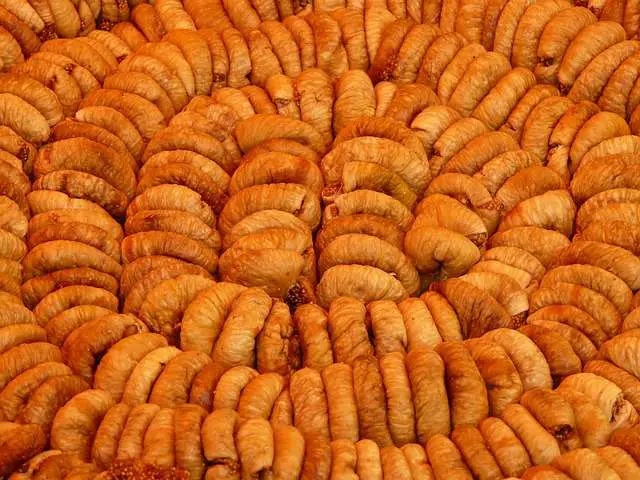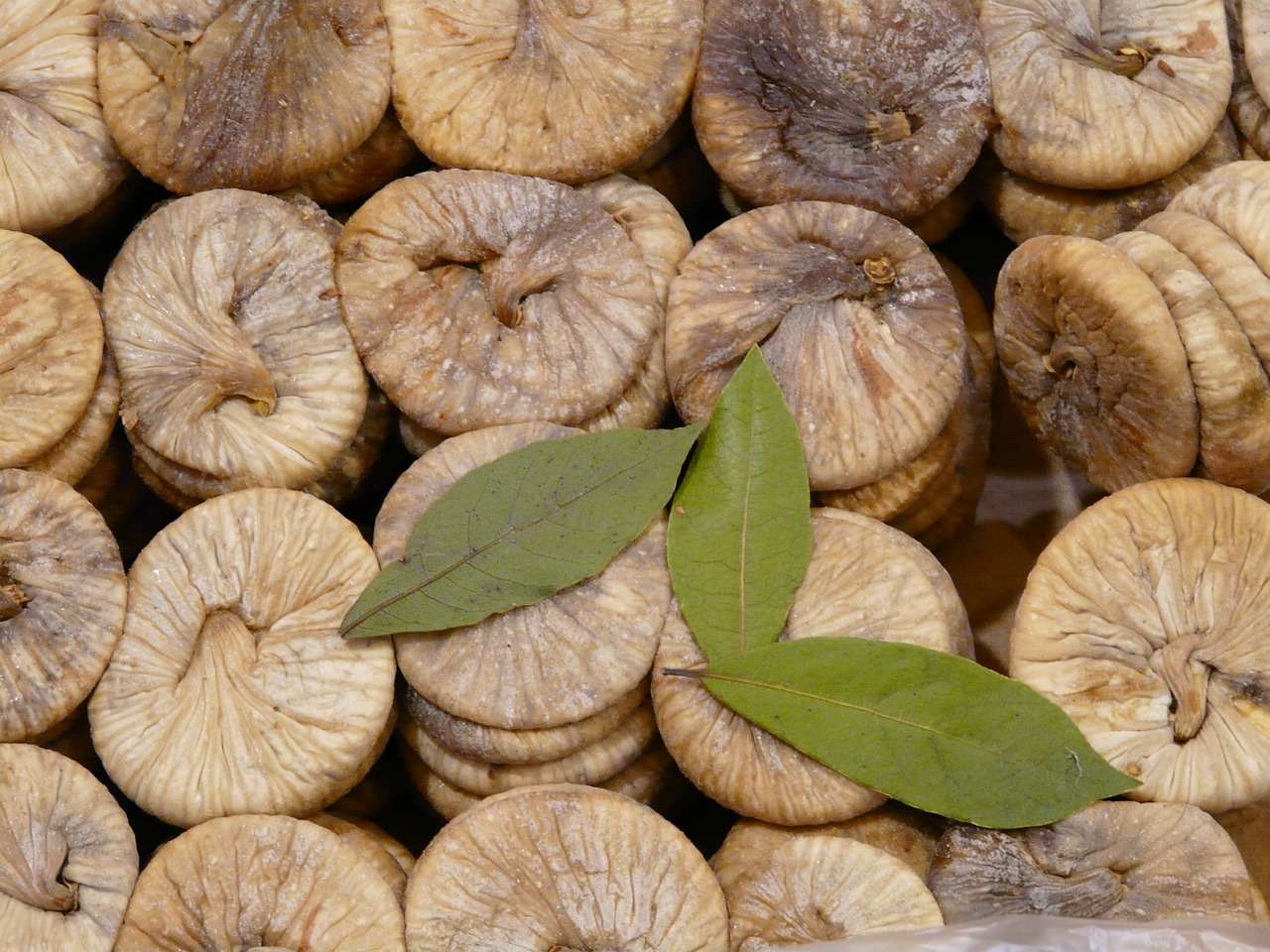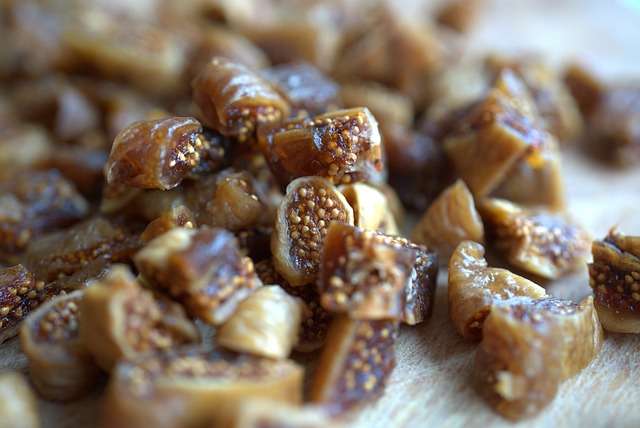Introduction:
“Dried figs,” also known as dried figs or figs in their dried state, are well-liked and nutrient-dense because of their nutrition facts of red dry figs dried fruit that comes from the Ficus carica, or fig, tree. Harvested figs are often sun-dried or dehydrated with specialized machinery to produce dried figs.

Figs lose some of their moisture during the drying process, giving them their distinctive texture and concentrated flavor. Due to their inherent sugars, dried figs are wrinkled, mushy, and just barely sticky.
They come in a variety of sizes and forms but typically have an oval or pear shape. Depending on the variety and drying method, dried figs can be any color from light yellow to dark brown.
Nutrition Facts of Red Dry Figs:
Like fresh figs, dried figs are a nutrient-dense supplement to your diet since they contain a wide range of macro and micronutrients. The macro- and micronutrient content of dried figs is listed below:
Macronutrients
Carbohydrates: The primary component of dried figs is carbohydrates, with natural sugars including glucose, fructose, and sucrose accounting for a sizable amount of this composition. The sweet flavor of dried figs is due to this.

Dietary Fiber: Dried figs are full of dietary fiber, which promotes regular bowel motions and helps with digestion. Additionally, fiber aids in maintaining healthy blood sugar levels and increases feelings of fullness.
Protein: Dried figs include a modest quantity of plant-based protein, which is necessary for muscle building and tissue repair but not as high in protein as certain other nuts or legumes.
Fat: Dried figs are low in fat, primarily in the form of heart-healthy unsaturated fats.
Micronutrients
Vitamin K: Dried figs are a good source of this vitamin, which is necessary for healthy blood clotting and bones.
Vitamin B6 (Pyridoxine): This vitamin is essential for the synthesis of neurotransmitters as well as brain growth and function.
Vitamin B3: Niacin, a form of vitamin B3, is involved in cell signaling and DNA repair.
Vitamin B9: Folate (vitamin B9) is crucial for the production of DNA and is of particular importance to expectant mothers in order to prevent birth abnormalities.
Potassium: Dried figs are a good source of this electrolyte, which helps control muscle contractions, fluid balance, and blood pressure.
Calcium: Dried figs still contain calcium, which is necessary for healthy bones and teeth as well as muscle function, despite not being as concentrated as dairy products.
Magnesium: Magnesium plays a crucial role in energy metabolism, bone health, and muscle and neuron function.
Iron: Iron is necessary for both the creation of overall energy and the transportation of oxygen in the blood.
Trace elements: Zinc, which is necessary for DNA synthesis, wound healing, and immunological function, is present in dried figs.

Antioxidants: Dried figs are rich in flavonoids and phenolic substances, which protect cells from oxidative stress and lower the risk of developing chronic diseases.
Phytonutrients: Dried figs also have phytonutrients, which are plant-based substances with a range of health advantages.
Health Benefits of Dry Figs:
Due to their nutrition facts of red dry figs dried nature, dried figs offer numerous health advantages similar to those of fresh figs. These are the top five advantages of eating dried figs for health:
1. Rich in Dietary fiber
Dried figs are a great source of dietary fiber, which helps to support healthy digestion. Constipation is avoided, regular bowel motions are supported, and balanced blood sugar levels are helped by fiber. Additionally,
It contributes to the sensation of fullness, which supports healthy weight management.
2. Rich in important nutrients
Dried figs are an excellent source of potassium, magnesium, calcium, iron, and B vitamins (such as B6 and riboflavin), among other essential vitamins and minerals.
These nutrients are essential for maintaining overall health, including the strength of bones and muscles and the generation of red blood cells.
3. Antioxidant qualities
Dried figs are rich in polyphenols and flavonoids, which help combat oxidative stress and lower the risk of developing chronic diseases.

Antioxidants may lessen the risk of heart disease and some types of cancer by shielding cells from the harm done by free radicals.
4. Supports heart health
Dried figs’ low sodium and potassium content can help regulate blood pressure, lower the risk of high blood pressure, and support heart health. By lowering cholesterol levels and inflammation, the fiber content may also benefit heart health.
5. Natural energy source
Due to their natural sugars, namely fructose and glucose, dried figs are a simple and energizing snack. They are therefore a fantastic option for a quick energy boost, whether before exercise or as a midday pick-me-up.
How to incorporate Dry Figs into your diet:
Including dried figs in your diet can be a tasty and wholesome way to take advantage of their inherent sweetness and health advantages. To incorporate dried figs into your meals and snacks, try the following methods:
Snacking: As a quick and portable snack, eat dried figs by themselves. They create a tasty and filling dessert.
Cereals and Oatmeal Topping: Chop dried figs and add them as a topping to your cereal or oatmeal in the morning. They give the dish a natural sweetness and textural boost.
Smoothies: To add taste and nutrition to your smoothies, blend dried figs into the mixture. They go nicely with foods like spinach, bananas, and almond milk.
Nut Butter Filled: Cut open dried figs and stuff them with almond or peanut butter for a filling and healthy snack.
Chutneys and Chutneys: To go with meat meals like roast chicken or pork, cook dried figs in sauces or chutneys. They enhance the flavor profile with a pleasing sweetness and depth.
Homemade Energy Bars: To make homemade energy bars or protein bars, combine dried figs with nuts, seeds, and other dried fruits.
FAQs:
Do dried figs provide a good amount of dietary fiber?
A1: Dried figs are a great source of dietary fiber, which supports good digestion.
Are dried figs an antioxidant-rich food?
A2: Antioxidants like polyphenols, which guard against oxidative stress, are present in dried figs.
Do dried figs aid with blood sugar regulation?
A3: When eaten in moderation, the fiber in dried figs can help maintain blood sugar levels.
Do dried figs make a good weight-loss snack?
A4: Dried figs can aid in weight management since their high fiber content encourages satiety.
Do dried figs include the vitamins and minerals our bodies require?
A5: Yes, dried figs are a good source of calcium, potassium, magnesium, and other vital vitamins and minerals.
Conclusion:
Finally, dried figs are a wholesome and functional food item. They provide a wealth of health advantages and nutrition facts of red dry figs, such as better digestion, heart health, and bone strength. They are also high in fiber, important vitamins, minerals, and antioxidants.
Dried figs offer a naturally delicious and nourishing approach to improve your general health, whether they are consumed as a snack, added to a salad, or incorporated into several recipes.
Due to their high-calorie content, they must be consumed in moderation, but when they are part of a balanced diet, they can be a delectable and healthful option.
